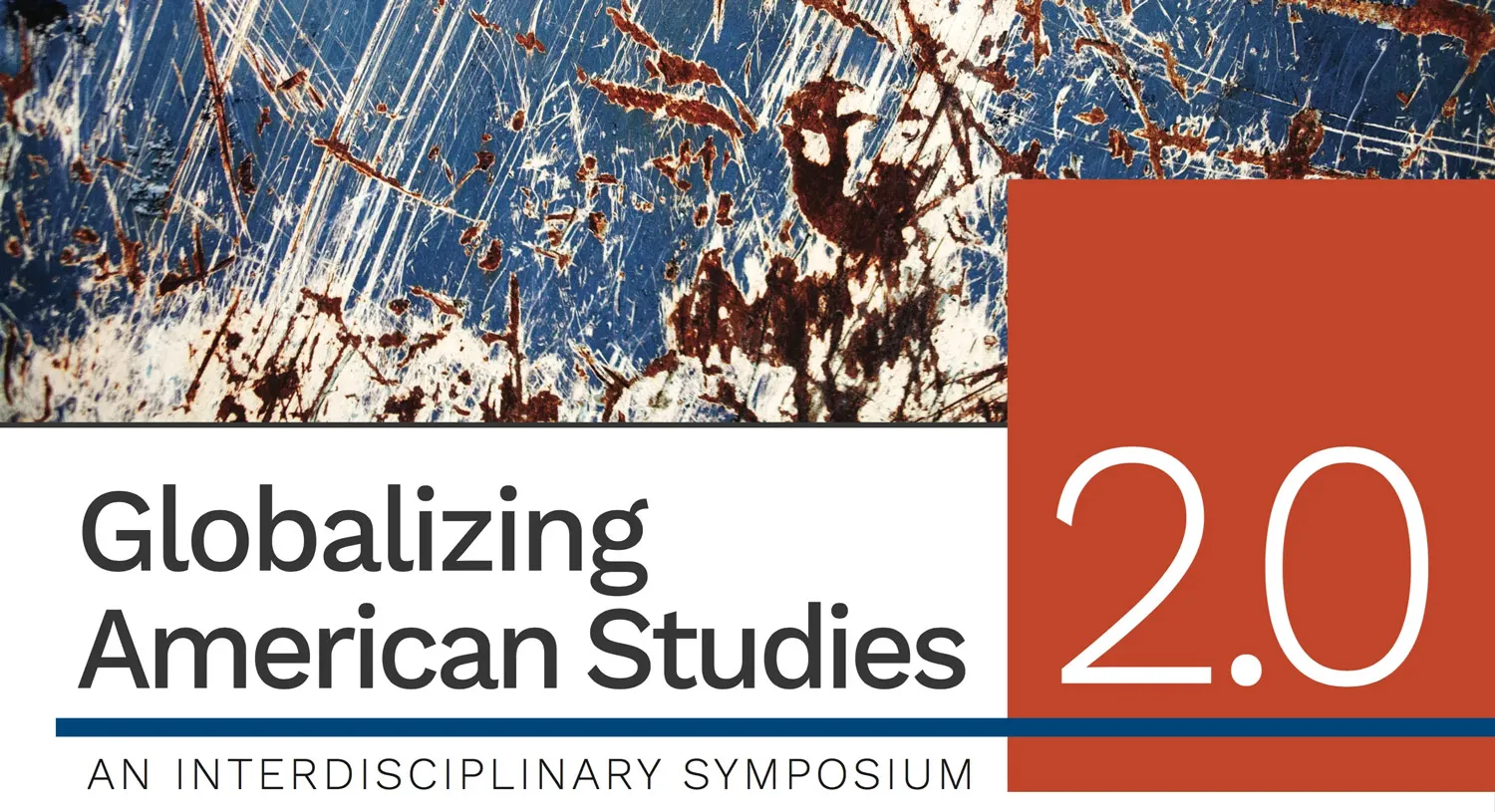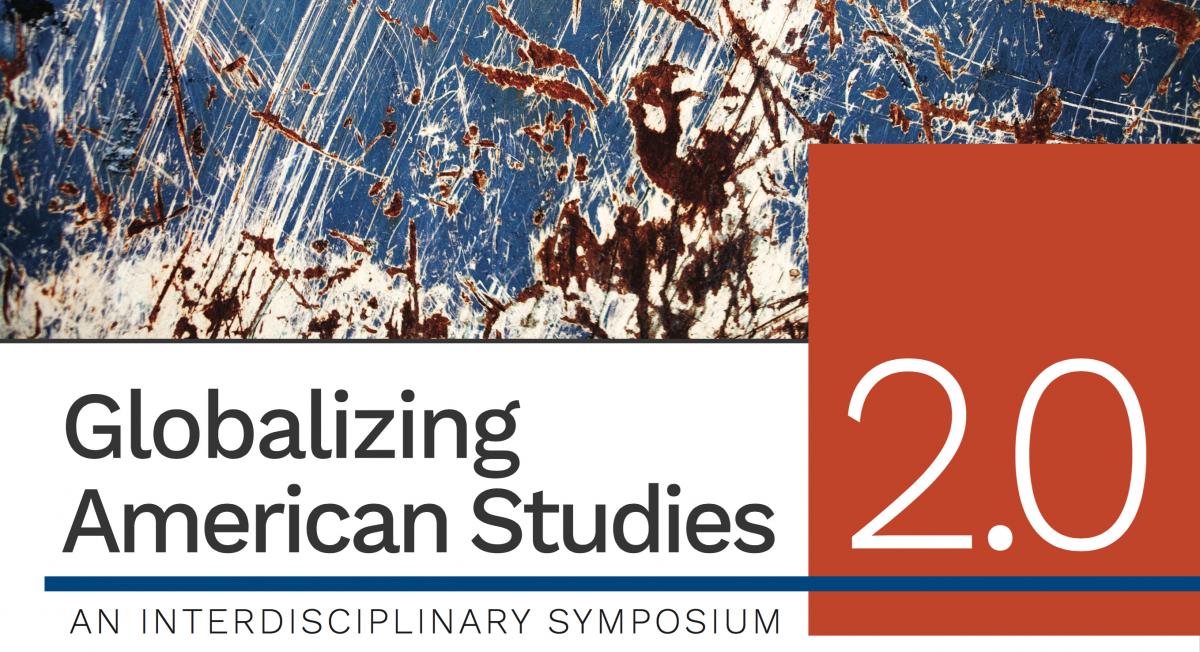A project of the Tulane Center for Global Humanities Research, School of Liberal Arts, Tulane University
Date: Wednesday April 17, 2019
Location: Richardson Memorial Hall 201
About the Symposium
This symposium is the relaunch of a project that began at Northwestern, in 2004, which featured several international symposia and established a global network of scholars. The goal of the project in its first incarnation was to undertake an analysis of US history, literary and cultural production from outside the frameworks of the exceptionalist paradigm. Inherent was a critique of American Studies itself, as methodology and rubric, and an interrogation of the residue of its cold war origins. This produced excellent papers and presentations, some of which were developed and published in Globalizing American Studies, co-edited by Brian Edwards and Dilip Parameshwar Gaonkar (U of Chicago Press, 2010). The book’s introduction argued that we had come to a time when “American exceptionalism has to stand alone in the multilateral world of the global.”
In the intervening years, the impact of the digital age, social media, and ever widening economic disparities have contributed to a seismic geopolitical reorientation, from the Middle East uprisings of 2009-11 to the global resurgence of populism and isolationism in the U.S., Italy, France, Venezuela, Turkey, etc, and the groundswell of authoritarian capitalism in Russia, Hungary, Poland, and China. The latest presidential administration retrenches behind the border and argues for an isolationism, both political and social, under the motto of a revivified exceptionalism. The time is right to return to the project, and launch a version 2.0. Papers and presentations in this installment take on a new set of topics and approaches, in a vivid set of inquiries and presentations. Participants address some of the blindness of the original project, broadly engaging native and indigenous studies, as well as environmental history and climate change, which variously impact the idea of what was called the “specter of America” differently.
Co-Conveners: Kate Baldwin and Brian Edwards, Tulane University
Symposium Schedule
8.30. Coffee
9.00. Opening and Introduction
Brian Edwards and Kate Baldwin
9.15-10.45. Session 1
Chair: Andy Horowitz, History, Tulane
Kelly Wisecup, “Accounting for America: Potawatomi Routes to Global Indigenous Solidarities”
Vicente Diaz, “Where, When, and What 'Only Time Will Tell': Micronesian Sea and Skyfaring in Dakota Rivers and Plains as Trans-indigenous Critique of American Exceptionalism”
11.00-12.00. Session 2
Monique Verdin and Jayeesha Dutta, “Floatation Adaptations - From Bengal to Balbancha”
Lunch break
1.30-3.00. Session 3
Chair: Jana Lipman, History, Tulane
Deborah Cohn, “Cold War American Studies: Seeking ‘Hearts and Minds’ and a Place in the Academy”
Donatella Izzo, “Pop(e)ulism: Populist Miracles and Neoliberal theologies”
3.00-3.15. Coffee break
3.15-4.45. Session 4
Chair, Fulvia Sarnelli, Italian Studies, Bowdoin
Selamawit Terrefe, “Impossible Blackness: African Diaspora, Speculating the Future Imperfect”
Donald Pease, “Trump's Anti-Globalist Globalization: An Era of Illiberal U.S. Hegemony?"
4.45 – 5.00. Comment
Dilip Parameshwar Gaonkar
5.00-5.30. Reception
Symposium Participant Bios
Kate Baldwin is Professor of English, Communication, and Gender & Sexuality Studies at Tulane. She is the author of Beyond the Color Line and the Iron Curtain: Reading Encounters between Black and Red (2002) and The Racial Imaginary of the Cold War Kitchen: From Sokol’niki Park to Chicago’s South Side (2016). Before joining the Tulane faculty in 2018, she was Professor of Communication and American Studies at Northwestern, and former director of the American Studies Program.
Deborah Cohn is Professor of Spanish and Portuguese and Associate Director of the College Arts and Humanities Center at Indiana University Bloomington. She is the author of The Latin American Literary Boom and U.S. Nationalism during the Cold War ( 2012) and History and Memory in the Two Souths: Recent Southern and Spanish American Fiction (1999).
Vicente M. Diaz is Professor of American Indian Studies at at the University of Minnesota, Twin Cities. His work includes helping to rewrite Guam’s history and civics textbooks and curriculum for the island’s public school (K-12) system in the 1990s, the documentary Sacred Vessels: Navigating Tradition and Identity in Micronesia (1996), a co-edited volume “Native Pacific Cultural Studies on the, and Repositioning the Missionary: Rewriting the Histories of Colonialism, Native Catholicism, and Indigeneity in Guam (2010).
Jayeesha Dutta is a tri-coastal, nearly tri-lingual Bengali-American interdisciplinary artist, activist, and strategist. She is a co-founding core member for Another Gulf Is Possible Collaborative.
Brian Edwards is Dean of the School of Liberal Arts and Professor of English at Tulane. His books include Morocco Bound: Disorienting America’s Maghreb (2005), Globalizing American Studies (co-ed. with Dilip Gaonkar, 2010), On the Ground: New Directions in Middle East and North African Studies (ed. 2013), and After the American Century: The Ends of U.S. Culture in the Middle East (2016). From 2004-2018, he directed the Globalizing American Studies Project at Northwestern, where he was also the founding director of the Middle East and North African Studies Program.
Dilip Gaonkar is Professor of Culture and Communication and Director of the Center for Global Culture and Communication at Northwestern University. In addition to editing multiple special issue journals, Gaonkar has edited several books on global cultural politics: Globalizing American Studies (with Brian Edwards, 2010), Alternative Modernities (2001), and Disciplinarity and Dissent in Cultural Studies(1995). He is currently working on a book manuscript titled Modernity, Democracy and the Politics of Disorder.
Donatella Izzo is Professor of American Literature at “L’Orientale” University, Naples, Italy. She is the author of many essays and books (including Portraying the Lady. Technologies of Gender in the Short Stories of Henry James, 2001) and has edited or co-edited volumes and journal issues on literary theory, cross-cultural literary rewritings, American studies as a disciplinary field, Asian American literature and theory, American TV series, the graphic novel in the US, the culture and politics of Hawai‘i, and the fictional representation of expertise.
Donald E. Pease is the Ted & Helen Geisel Professor of English and Founding Director of the Futures of American Studies Institute at Dartmouth. The author of Visionary Compacts: American Renaissance Writings in Cultural Context, The New American Exceptionalism, and Theodor Seuss Geisel; the editor or co-editor of 14 volumes including Cultures of U.S. Imperialism, Futures of American Studies,Re-Mapping the Trans-National Turn in American Studies, and American Studies as Transnational Practice; Pease has received Guggenheim, Ford, Mellon, NEH, and Hewlett fellowships; the degree of Doctor of Philosophy honoris causa at Uppsala University, and the Carl Bode-Norman Holmes Pearson Prize for life-long service to American Studies.
Selamawit D. Terrefe is an Assistant Professor of African American literature and culture in the Department of English at Tulane University, where she also holds affiliations with the Department of Africana Studies and Stone Center for Latin American Studies. Terrefe’s work examines the effects of violence on the psychic life of Black people; hence, her research questions focus on radical and revolutionary political movements, theories, and creative practices engaged by Black diasporic communities in the wake of continued racial animus.
Monique Verdin is director of the Land Memory Bank & Seed Exchange, a former member of the United Houma Nation Tribal Council and is part of the Another Gulf Is Possible Collaborative core leadership circle.
Kelly Wisecup is Associate Professor of English and co-director of the Center for Native American and Indigenous Research at Northwestern University. She is the author of two books, Medical Encounters: Knowledge and Identity in Early American Literatures (2013) and “Good News from New England” by Edward Winslow: A Scholarly Edition (2014) and her articles have appeared in American Literary History, Early American Literature, The Native American and Indigenous Studies Journal, and Early American Studies.



